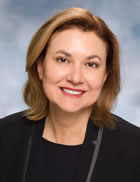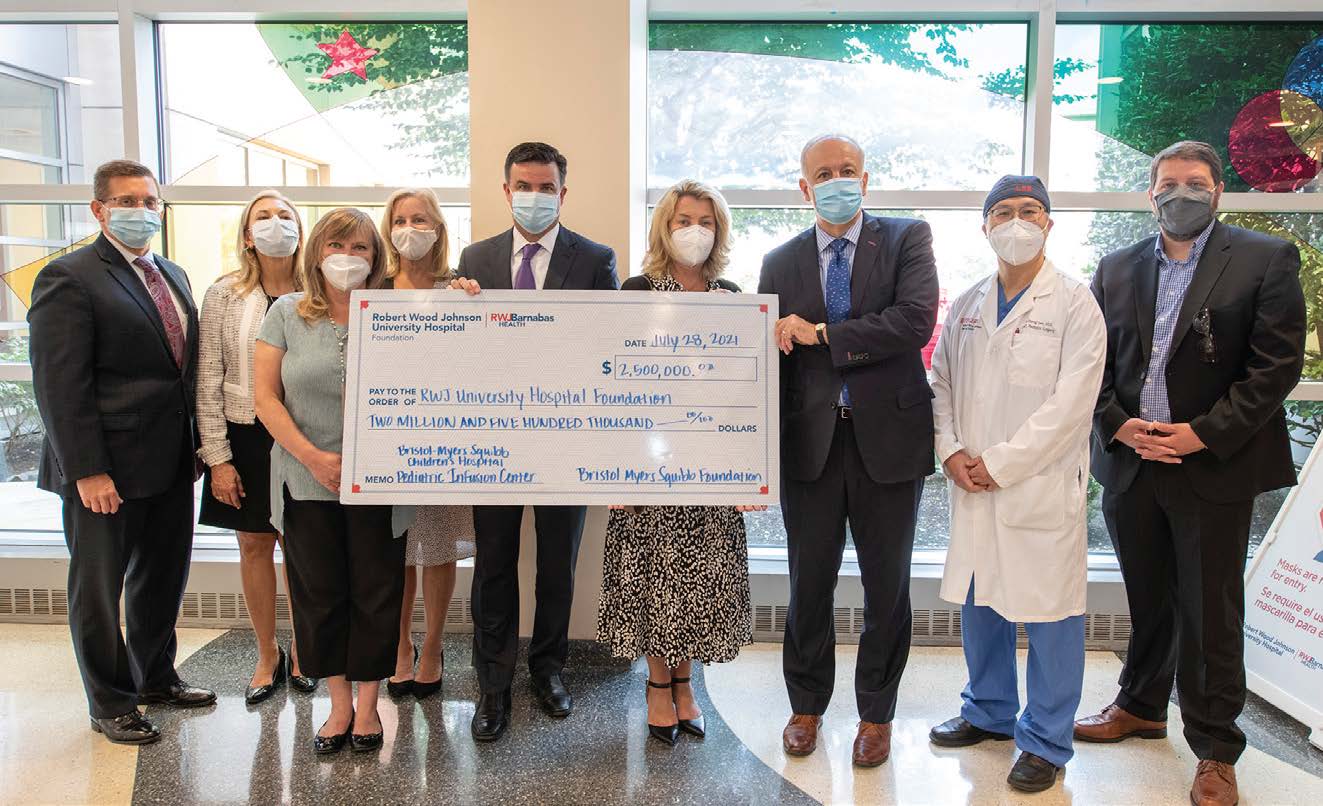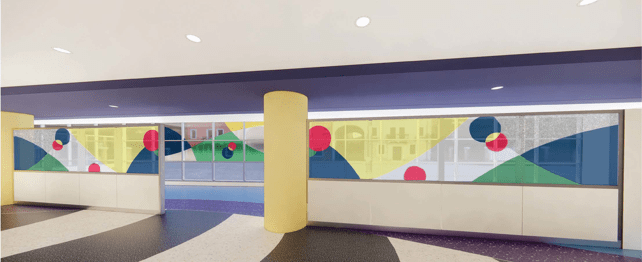New pediatric infusion center will support state-of-the-art biologic therapies.
The Bristol-Myers Squibb Children’s Hospital (BMSCH) at Robert Wood Johnson University Hospital has responded to major advances in therapeutics for children with plans for a new dedicated pediatric infusion center. A $2.5 million commitment from the Bristol Myers Squibb Foundation will support the infusion center’s planning and construction.

“We now have many biologic, injectable therapeutics for children, including immunomodulators that are being used for an increasing number of disorders affecting the immune system,” says Sally Radovick, MD, Professor of Pediatrics, Chair of the Department of Pediatrics and Physician-in-Chief at BMSCH. “In some cases, these advanced treatments have become first-line therapies.”
In addition to immunomodulators, other forms of infusion therapies are being used to treat an increasingly wide range of both acute and chronic pediatric conditions. These include gastrointestinal disorders such as ulcerative colitis and Crohn’s disease, rheumatologic conditions such as juvenile rheumatoid arthritis, neurologic problems such as multiple sclerosis, antirejection therapy for kidney transplants and genetic, endocrine and blood disorders. “There’s been an explosion of these therapies available for children, especially in the last few years,” Dr. Radovick says.
“As biologic and drug therapies delivered through infusion in an outpatient setting become a growing part of pediatric health care, we need a state of- the-art space dedicated to providing them that’s both permanent and childfriendly,” says William Faverzani, Vice President and Chief Administrative Officer at BMSCH. “These new treatments promise to keep many children out of the hospital and offer them a better quality of life.”
A Child-Friendly Setting
Children and families entering the first-floor infusion center will likely first notice amenities such as colorful décor, toys and games, Wi-Fi capability and a variety of electronic diversions such as tablets, video games and TVs. Infusions will be delivered in private rooms. Furnishings will include reclining chairs that contribute to a relaxed atmosphere in which parents are able to stay with their children throughout treatment.
“Child-friendly amenities address the needs of children who may spend a few hours to even a full day receiving treatments,” Faverzani says. “In everything we do at the children’s hospital, a child should still be able to be a child. Playing games and interacting with others are what they should be doing to learn and develop, and we want an environment that has activities and is engaging.”
Children also are more likely to benefit from treatments when they’re comfortable. “Coming into a fun environment for reasons that aren’t very fun is reassuring to a child and minimizes discomfort,” Dr. Radovick says.
Specialized Attention
Providing a dedicated space has clinical significance as well. In addition to infusions, the center will provide therapeutic injections, sedation for diagnostic tests such as MRIs that require a child to be completely still and provocative stimulation testing in which the response to an administered agent helps diagnose conditions such as growth hormone deficiency.
“These therapies require regimens that are focused on the child in terms of both comfort and safety,” Dr. Radovick says. “The pediatric infusion center will be staffed by pediatric specialists who focus only on children. We’ll have highly trained pediatric infusion nurses and nurse practitioners who are specially versed in putting an IV in a child, decreasing discomfort with tools such as numbing cream and responding to any side effects.” Pediatric physicians will be close at hand to assist with any unforeseen complications.
“We also have child life specialists who are specially trained in the developmental needs of children of all ages and work directly with patients to cope with what they’re going through,” Faverzani says. “We have one of the largest child life teams in the state. That’s a distinguishing feature of the pediatric infusion center and one of the things that make our children’s hospital special.”
Adding a pediatric infusion center is consistent with the mission envisioned for BMSCH when it was founded 20 years ago. “We adapt as pediatric health care evolves,” Faverzani says. “Creating a pediatric infusion center says that we are at the forefront of treatment modalities and continually update our facilities to meet the clinical needs of patients today.”
 A History of GenerosityThe Bristol Myers Squibb Foundation has a long legacy of significant financial support for The Bristol-Myers Squibb Children’s Hospital (BMSCH) at Robert Wood Johnson University Hospital as well as broader support for Robert Wood Johnson University Hospital (RWJUH) and RWJBarnabas Health (RWJBH). With the Foundation’s latest commitment of $2.5 million to support creation of a pediatric infusion center, total giving is now more than $20 million. The long-term partnership between the Foundation and BMSCH dates to 20 years ago, when a $5 million naming gift from the Foundation helped establish the children’s hospital. A close relationship has continued ever since. “Partnerships are all about relationships and staying the course,” says John Damonti, President of the Bristol Myers Squibb Foundation. “Putting up a building is a first step. But a building is nothing unless the best people, most caring staff and state-of-the-art capabilities are inside that building. As the children’s hospital has continued to grow and pediatric medicine has rapidly evolved, we have supported the hospital in providing world-class care and services to the children of New Jersey.” Optimal Care Close to HomeCommitting a $2.5 million gift to support a pediatric infusion center is just the latest example. “The Foundation’s investment in the growth and development of BMSCH has included the addition of specialized centers, developing and supporting surgical expertise and attracting the best physicians,” Damonti says. “By providing optimal care for children in New Jersey so families don’t have to travel out of the area, we support our local community, including our own employees who live and work here.” “The Bristol Myers Squibb Foundation has been a tremendous partner over the years, and their significant gift to enable building the pediatric infusion center is a testament to their commitment to children and belief in BMSCH’s ability to be the leader in pediatric health care in New Jersey,” says Bill Arnold, President and Chief Executive Officer of RWJUH. “We’re proud of our partnership and pleased that they join with us to give children the best care possible.” |
